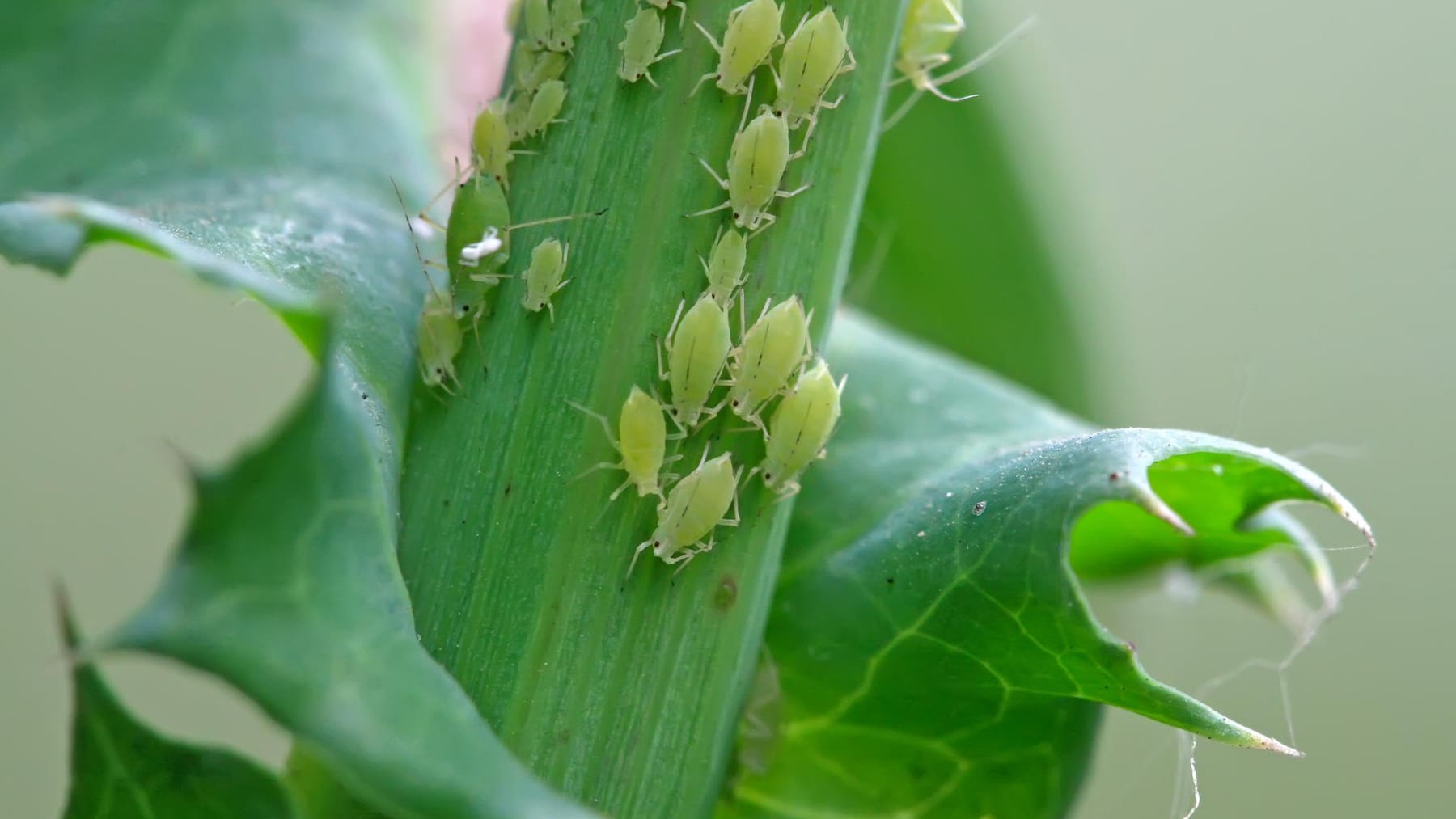Whether white, black or green: aphids are harmful to plants and should be combated. Does dish soap help against the pests? Or is the home remedy bad for the plant?
The most important things at a glance
Dishwashing liquid is often mentioned as the ultimate tip against aphids. The home remedy makes the surface of the plants slippery and slippery so that the pests can no longer hold on and fall off. In addition, the substance poisons the aphids, it is said. We do the test.
Dishwashing liquid against aphids: Here’s how
For crafting you will need
- A spray bottle
- Some dish soap
- Water – the amount depends on the size of the spray bottle
- Fill the spray bottle two-thirds full with water.
- Depending on the amount of water, add some washing-up liquid to the bottle. You can add ten milliliters of undiluted washing-up liquid to every liter of water. The mixing ratio should be observed and not exceeded.
- Cap the spray bottle and shake it. The detergent should mix well with the water.
- Rinse your plant. The shower is suitable for indoor plants and the garden hose for garden plants. This will already remove a few aphids.
- Then wait for the moisture to dry. If you were to apply the dishwashing liquid now, it would dilute and possibly flow down into the soil.
- For indoor plants, cover the soil with kitchen paper. This will prevent (too much) detergent from getting into the soil.
- Now spray the stems and leaves with the detergent mixture. Don’t forget the underside of the leaves.
- Wait two to three days and see if the aphids are gone.
- You can now carefully remove the soapy water from the plant parts with a moistened kitchen paper. This will remove the honeydew from the lice and dead, stuck pests.
- Finally, you should shower the plant again. This is to prevent the plant from suffering from the treatment.
Tip: The application should not be carried out in strong sunlight. Because it can lead to chemical reactions of the cleaning substances on the leaves. It is therefore best to use the washing-up liquid in the evening.
Is dish soap bad for plants?
Yes, dish soap is harmful. Even when diluted. The detergent contains, among other things, fatty acid salts. They are phytotoxic to plants, i.e. poisonous and therefore harmful.
If you want to try detergent against aphids, it is important to
- cover the soil under the plant,
- not to use too much detergent
- then remove excess washing-up liquid with the damp kitchen paper,
- not to use the detergent mixture too frequently and
- do not apply the mixture in strong and direct sunlight.
And: Both dishwashing liquid and hand soap or detergent contain toxic substances. So it makes no difference which cleaners you use as they can be almost equally harmful to the plant.
Editorial experience
Our test showed that washing-up liquid is not the most effective remedy against aphids. Especially if the infestation is already very severe. Damage was also found in sensitive plants. We would therefore advise against the home remedy.
